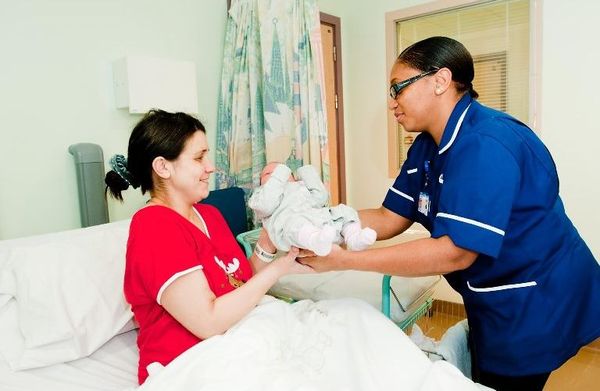State of NHS buildings holding back improvements in maternity care





Leading health organisations have called for upgrades to England’s NHS maternity service buildings to improve care for women and conditions for staff in a letter to Health Minister Nadine Dorries today.
Women’s maternity care was significantly impacted during the pandemic, made worse by old, poorly designed buildings, according to the One Voice coalition of health organisations and the Society of Radiographers. Many women were unable to have their partners with them because the layout of maternity facilities prevented social distancing, and would have put women, their partners and other service users at risk of catching the virus. We are calling for better design and use of space, such as having single rooms and dedicated areas for maternity clinics and scans.
Gill Walton, Royal College of Midwives (RCM) Chief Executive and Co-chair of One Voice, said: “Many women suffered significant distress during the pandemic because they could not have partners with them. Something as simple as a well-designed building can make a huge difference to the experiences of women and their families using maternity services. As the pandemic also showed, it was often the difference between a woman having a partner or friend with her at appointments and being alone. We have had a significant injection of money into England’s maternity services to increase staffing levels and support better training. We now need a similar commitment to improve the buildings these services are in.
“Many of the buildings used are old and in need of repair. They are simply not fit for purpose. We must learn the lessons of the past year and ensure maternity services have the right building and conditions in which to deliver the safest and best possible care for women, their families and for staff.”
A survey by Sands for Baby Loss Awareness Week last year found that among the reasons why partners were not asked to attend routine appointments and scans was the difficulty of social distancing in scan rooms. Bereaved families were also hit by pandemic restrictions as many bereavement rooms were used for other services.
Clea Harmer, Chief Executive of Sands said: “It is crucial that mothers who are pregnant after the death of a baby are able to have the support of a partner who can be with them during antenatal scans and birth. During the pandemic we know there has been inequality of access for these partners, and this has often been due to a lack of space. Upgrading the estate of hospitals will allow those who have suffered the death of a baby to spend precious time making memories, and will also allow those pregnant after loss to have the support that they need.”
One Voice call for a wholesale review of NHS estates particularly maternity services and upgrading those that fall short of the standard needed. They also say better planning of maternity facilities in new hospitals is needed, such as ensuring sufficient space and dedicated clinical areas and rooms – including bereavement rooms – are incorporated into the design.
Dr Edward Morris, Royal College of Obstetricians and Gynaecologists President and Co-chair of One Voice, said: “Last month, the government announced an extra £95 million a year would be put towards improving maternity services, through training and resources. This funding will go a long way to ensuring the safety of pregnant women and babies and we are very grateful for this commitment.
“However, it is also vital that maternity staff are provided with facilities that meet requirements and allow them to work in the most efficient and safest way possible. Many of the NHS buildings aren’t fit for purpose and this can have a huge impact on how well staff are able to do their jobs and also the experience of women using the services – as we’ve seen during the pandemic with the poorly designed rooms often restricting access for birth partners.
“We would like to see the government’s commitment to maternity services extended to improve and upgrade maternity facilities.”